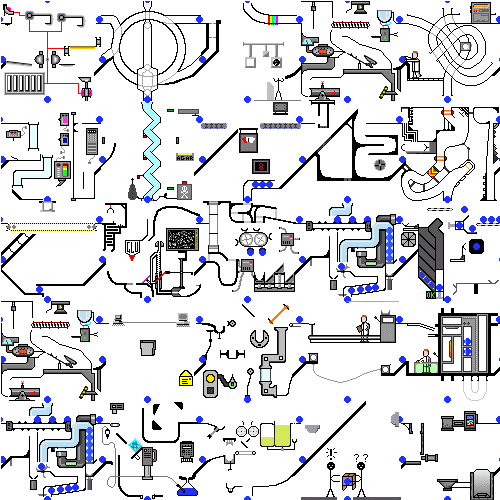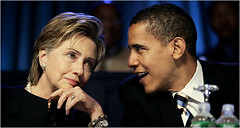Letter from France
August 27, 2007
- The Human Bomb
-
- LETTER FROM FRANCE about French president Nicolas Sarkozy. To understand Nicolas Sarkozy, who has been President of France for three months, it helps to know the story of the human bomb. In 1993, when Sarkozy was mayor of Neuilly, he went into a nursery school where a man strapped in…
"He [Sarkozy] continued, “With America, he wants the normal relations we’ve always had. But he is capable of candor there, too. When Sarkozy met Condoleezza Rice, she said, ‘What can I do for you?’ And he said, bluntly, ‘Improve your image in the world. It’s difficult when the country that is the most powerful, the most successful—that is, of necessity, the leader of our side—is one of the most unpopular countries in the world. It presents overwhelming problems for you and overwhelming problems for your allies. So do everything you can to improve the way you’re perceived—that’s what you can do for me.’ I think it’s entirely possible; the reservoir of good will has been drained somewhat, but it is far from dry. Look how much the image of France has changed in the United States in eight weeks.”
"Sarkozy’s decision to spend his summer vacation in New Hampshire and have lunch with George W. Bush in Maine was widely regarded in France not as obsequiousness but as pure human-bombism: walk right up to the man considered dangerous and disarm him by talking calmly over a hot dog. The effect aimed for was not so much audacity as anomie: Sarkozy is trying to remove the drama from Franco-American relations by making them “normal.” I’m in the neighborhood—let’s have lunch. The larger, implicit point is that the threatening thing is not really that threatening.
"The catastrophe in Iraq has had an unlooked-for effect: not to stoke anti-Americanism in a new generation but to make America seem almost marginal. For almost two hundred years, Americanization in Europe has been synonymous with modernization—that’s why the Statue of Liberty stands in New York Harbor, as a gift of the Third French Republic, the fraught state that appeared after Louis-Napoleon’s Second Empire failed. It was a gift not from a complacent old world to a nascent new one but from a newborn republic to one that, after its civil war, was firm and coherent. The point wasn’t that Europe would not abandon us; it was that we would not abandon old Europe to the despots.
"Now, for the first time, it’s possible to imagine modernization as something independent of Americanization: when people in Paris talk about ambitious kids going to study abroad, they talk about London. (Americans have little idea of the damage done by the ordeal that a routine run through immigration at J.F.K. has become for Europeans, or by the suspicion and hostility that greet the most anodyne foreigners who come to study or teach at our scientific and educational institutions.) When people in Paris talk about manufacturing might, they talk about China; when they talk about tall buildings, they talk about Dubai; when they talk about troubling foreign takeovers, they talk about Gazprom. The Sarkozy-Gordon Brown-Merkel generation is not unsympathetic to America, but America is not so much the primary issue for them, as it was for Blair and Chirac, in the nineties, when America was powerful beyond words. To a new leadership class, it sometimes seems that America is no longer the human bomb you have to defuse but the nut you walk away from.
"What Brown, Merkel, and Sarkozy all have in common is that they do not want to be defined by their response to America—either unduly faithful, as with Blair, or unduly hostile, as Chirac became. Instead, as Levitte says, they all want to normalize relations with a great power that is no longer the only power. Its military weakness has been exposed in Iraq, its economic weakness by the rise of the euro, and its once great cultural magnetism has been diminished by post-9/11 paranoia and insularity. America has recovered from worse before, and may do so again. But it is also possible that the election of Nicolas Sarkozy may be seen not as the start of a new pro-American moment in Europe but as a marker of the beginning of the post-American era."




































































No comments:
Post a Comment